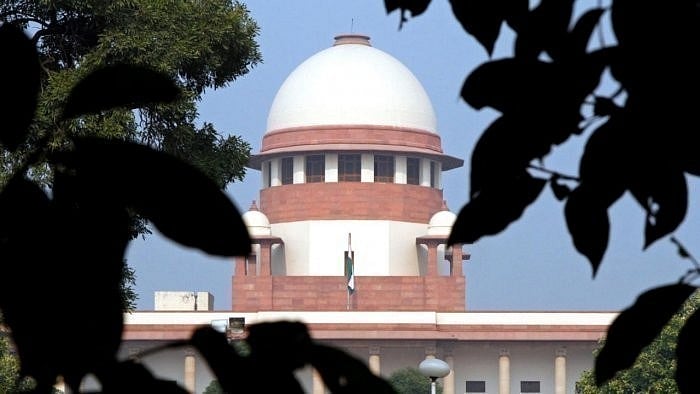
The Supreme Court of India.
Credit: PTI File Photo
New Delhi: The Supreme Court has modified the Allahabad High Court's order directing the Uttar Pradesh government to reinstate services of a large number of doctors, terminated in 2010 for their long abstention, holding that conduct of the persons who invoked writ jurisdiction must be considered before granting any relief.
Acting on appeal by the state government against 2015 order, a bench of Justices Abhay S Oka and Augustine George Masih pointed out that it was an admitted fact the doctors remained continuously absent for more than 4 to 5 years.
The High Court, considering the writ petitions of the doctors, employed in the health services of the Uttar Pradesh government, quashed their termination order issued on May 3, 2010.
The apex court, however, found that none of them have pleaded that after termination order was passed, they continued to survive without either practicing medicine or without taking any other employment. They have also not pleaded that they had no income from the date of termination.
"After noticing that the respondents (doctors) have long absentation of more than 4 to 5 years, the High Court ought to have moulded the relief by not granting reinstatement. The writ jurisdiction under Article 226 of the Constitution is always discretionary and the conduct of the persons who invoke the jurisdiction has to be taken into consideration while granting reliefs," the bench said.
The court thus modified the High Court's order by directing that interests of justice will be met if the state government is directed to pay to the respondents a lump sum compensation of Rs 2,50,000 each in lieu of reinstatement within a period of three months.
In its appeal, the state government contended the High Court ignored what was stated in the order of termination, since it was impracticable to hold inquiry against few thousand doctors who remained absent for years.
It submitted that which is way a recourse to clause (b) of the second proviso to Article 311 (2) of the Constitution was taken and the employment of the doctors including respondents Dr Sudarshan Kumar and others was terminated.
The bench, however, said the High Court's order showed that the only argument canvassed by the state government was that the respondents were absent for a long period and public interest was suffering.
The bench felt if according to the state government, submissions actually made were not noted by the High Court, the remedy of the was before the High Court.
"However, that was not done," the bench said, modifying the High Court's and directing for payment of lump sum compensation to the doctors.
